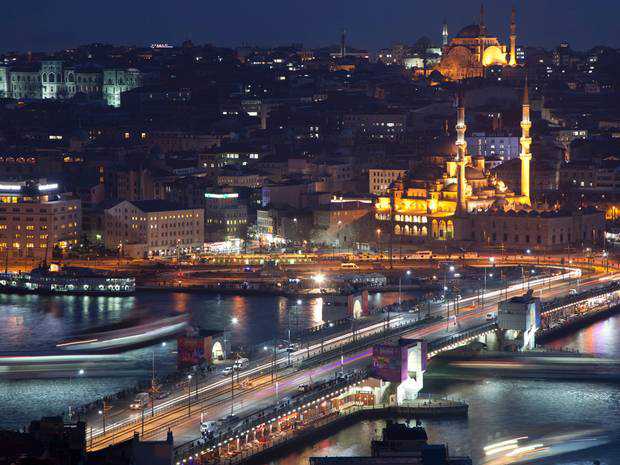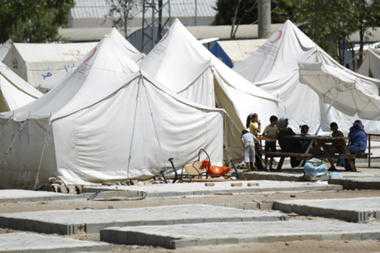As much of Europe stumbles, Turkey has a spring in its step. Its economy doubled in a decade. Istanbul is a great cosmopolis once again and little-known Anatolian cities are booming. Neighbouring countries watch Turkish soap operas on Turkish televisions, and Turkish leaders pronounce confidently from their new place on the world stage.

But the contrast with problems in the European Union is overdrawn. For Turkey has come to no less treacherous a pass, and to fulfil its vast promise, Turkish leaders and Western policy must now change course.
Could it be magic?
During his early years in power Prime Minister Erdogan seemed to be writing a happy ending to the world’s longest running story of democratisation. The military were brought under civilian control. Steps were taken to reconcile Turkey with its own minorities. Systematic torture and the death penalty were abolished. The inducement of EU membership worked its magic.
But Mr Erdogan also used this time to rid himself of enemies within the Turkish state and build support until he no longer needed the legitimacy of the European mantle. And soon after formal negotiations to join the EU began, European leaders emerged who mocked Turkey’s aspiration to EU membership. A more amenable friend was on his way in President Obama, who on his first overseas tour began a strikingly uncritical “model partnership” which valued Turkey for what help it could give in a troubling region.
Today Mr Erdogan is the world’s leading jailor of journalists. 76 are now imprisoned and more are harassed or fired for dissent, casting a long shadow of self-censorship. Constitutional reform is becoming the instrument of Mr Erdogan’s ambition. As his term limits as party chairman and member of parliament draw near, plans have been announced for an overbearing presidential system which would further concentrate his power.
Much of the government’s support rests on its able management of the economy, and its striking growth. Now it has slowed, a new wave of reforms should focus on one of Turkey’s few great natural resources: it’s young population, who could refashion a more advanced economy. But this is a small challenge compared with Turkey’s political predicament.
If Turkey’s answers do not lie in servility to Mr Erdogan, neither can they be found in unthinking veneration of the father of the republic, Mustafa Kemal Attatürk. The Europe Attatürk emulated and sought to join no longer exists, and ethnic nationalism will only lead Turkey down a bloody cul-de-sac. For the inconvenient fact for the Turkish state is that at least fifteen million of its citizens are Kurds.
Civil war
South Eastern Turkey is a few reprisals short of civil war. The only way to undermine Kurdish extremists is to send a message to Kurds that they can belong to Turkey without denying their own language and identity. The purpose of Turkey’s new constitution is therefore not to serve Mr Erdogan’s career but to recognise the country’s pluralism. This need not be a Western lesson; Turks might just as well look to rising democracies like Brazil or India.
No country had a consistent response to the Arab Spring. But, aloof from its Islamic neighbours for a century, Turkey is now compensating. There are not economic opportunities or security guarantees to supplant the West but everyone should hope Turkey can fulfil its mediating vocation. Syria is only one of half a dozen problematic borders. Sober self-awareness would prompt Turkey to take the initiative for peace where it can, such as opening its ports to Cypriot ships.
Much blood and ink has lately been spilt on the subject of democracy in the Middle East, and in the last two years several countries have embarked on perilous transitions. But it is time to reckon with the simple fact that without a change of course in Turkey, whereas until now there has been one Muslim democracy in the Middle East, there will soon be none. Turkey’s leaders might also consider the source of their prestige: the forward-thinking example they helped to set, but have begun to undermine.
via What happened to democracy in Turkey? A beacon of hope in the Middle East is plunging into twilight – Comment – Voices – The Independent.


